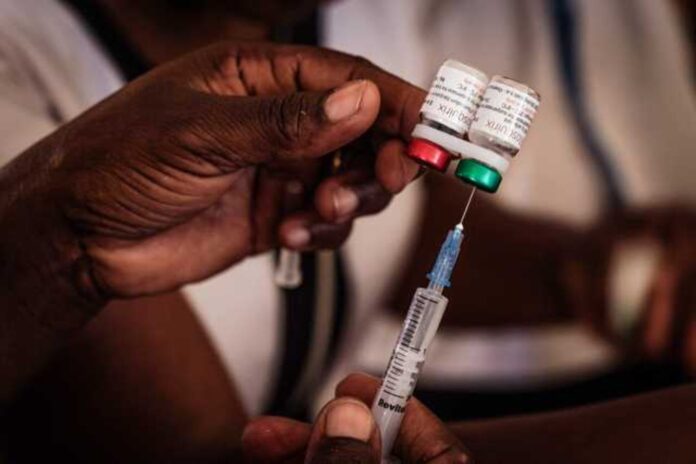As the few remaining doses on hospital shelves are running out, the shortage of children’s immunisations is currently swiftly spreading to every county in the nation. Reports also suggest that the current supply of vaccines may run out in less than a month.
The health and future of 1.6 million babies and a comparable number of pregnant women are currently at risk due to this crisis, according to the Kenya Paediatric Association (KPA).
Susan Nakhumicha, the Health Cabinet Secretary, acknowledged in public two weeks ago that the shortage was primarily caused by a debt of nearly KSh2 billion owed to organisations like the Global Vaccine Alliance and UNICEF, which funds the production of supplies.
Nonetheless, the public was reassured last week by Harry Kimtai, the Principal Secretary for Medical Services, that the Ministry of Health and National Treasury were making progress in resolving the issue.
In response to the severe lack of basic vaccines throughout the nation, he disclosed that Sh1.3 billion has already been set aside to quickly obtain routine antigens and restock the life-saving vaccines in the medical facilities.
Nevertheless, community reports suggest different, with nearly all medical facilities operating at a loss when it comes to vaccine stock.
Several counties have reported outbreaks of diseases that can be prevented by vaccination, prompting the Council of Governors to issue an alarm.
According to Dr. Supa Tunje, national chairperson of the KPA, Kenya’s governmental commitment to promoting child health has significantly decreased.
This is despite the country having reduced mortality by more than half, from 96 per 100,000 in 1993 to an expected 41 per 100,000 in 2022.
In addition, Tunje emphasised that the percentage of children in Kenya who received all recommended vaccinations increased from 59% in 1989 to an astounding 80% in 2022.
This increase can be attributed to a considerable decrease in the prevalence of illnesses such as measles, polio, tetanus, diphtheria, whooping cough, diarrhoea, pneumonia, and whooping cough.
Nevertheless, Tunje laments that the diligent efforts to achieve these gains are already at risk.
This is in reaction to a recommendation made in February by the National Treasury to reduce the funding allocated for immunisation from the approved projections of Sh9.8 billion for the current Financial Year (2023–2024) to Sh9.4 billion.
As per Dr. Tunje, the unavailability of important vaccines for our most vulnerable population, which includes newborns and children under five, is the result of budget cuts and outstanding debts to vaccine providers.



















